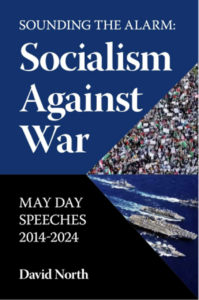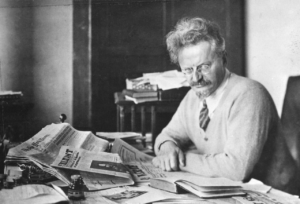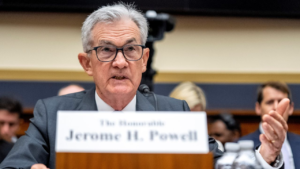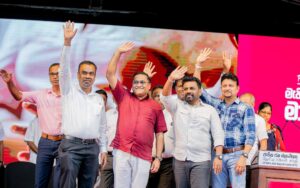By Nandana Nanneththi
[This is a translation of the article we published in Sinhalese on 13 May 2023]
SEP Comrades and Friends, who stand against capitalism,
We have entered a critical phase of the class struggle. The world is fast heading towards a world war and to a situation where revolution and counter-revolution are posed against each other. It is now very clear that there is no way forward for any nationalist movement other than sharpening the counter-revolution.
But without the decisive intervention of the working class, not a single problem of the people will be solved. Without arming the working class with the international revolutionary program of the International Committee of the Fourth International (ICFI), the working class cannot play a central role in the growing current of mass struggles. To do that, the fight against the existing consciousness of the working class should be intensified and accelerated.
On the part of the capitalist class, it is necessary to diffuse that battle in order to secure itself. The pressure exerted by capitalism on the working class to create a situation within the parties themselves that can slip the national sections of the International Committee from their foundations, is immense.
In Sri Lanka, the target victim of this pressure is the Socialist Equality Party (SEP). Therefore, more than ever, it is essential to be based on the history of the international class struggle and the party, and to be firm in policies and principles.
In these circumstances, the fact that the party’s current bureaucratic regime is diluting the party is a matter that needs to be discussed in depth. It is a task that calls for greater effort in theory, programme and perspectives. It is crucially important to expose and defeat the terrible lies and distortions propagated inside and outside the party by the party regime against the members who highlight that task.
On The 16 November 2021, comrade Wije Dias, the then General Secretary of the party accused me of rejecting the perspective of the International Committee on Self-Determination and banned me from party membership for three weeks from November 15, 2021, saying that the “membership ban will continue to be in effect” unless explanations were made within that period. You will understand sooner that this was the beginning of a witch-hunt launched in the party since 2015 when the Sirisena-Wickramasinghe government came to power with the backing of the United States.
However, I responded to the leadership in due time. It exposed the falsity of the leadership’s allegations and was therefore thrown out for the same reason. But as against that, the party circulated a letter dated December 20, 2021, written under the name of Wasantha Rupasinghe, with the approval of the General Secretary, which stated, “when we look carefully at all these distortions of Comrade Nandana” it appears that “the party is turned away from the internationalist foundations and surrendered to petty-bourgeois pressure by posting on Facebook pages to transform the party into an ‘ambalama’ (a wayside resting place for general public during the past) that can be used by various leftist people,”
The aim of the bureaucracy was to prevent me from attending the Congress which was to be held in March.
A letter dated February 7, 2022, signed by 17 party members and sent to the SEP Central Committee, intervened against this preparation. It states “Comrade Nandana has forwarded his reply to the Central Committee within the stipulated period. But the political committee has decided to prevent him from participating in the National Congress to be held on February 12, 13, 14 by continuing the ban without giving any reason.”
“In response to Nandana’s request to participate in the Congress, he was informed in a letter on the 29th that the Political Committee had decided with the consent of Comrade DN to allow him to participate in the conference and preparatory discussions subject to three conditions: ie. not abusing the membership mandate received; not disrupting the discussion; and acting under the agenda of the Congress and the pesidum to be appointed. Nandana has reported to the Central Committee and the International Committee that he accepts these conditions, on the 31st.”
“However, at 12.35pm on the 2nd, an email from Comrade Wije banned his participation once again.”
Rejecting the unconstitutional and undemocratic decision of the Political Committee, the members’ letter stated, “[w]e insist on the serious relevance of theoretical political discussions based on democratic centralism for political clarity.” “The attempt is made to hold the Congress in this way, in the circumstances where the political committee has made serious allegations against three party central committee members and a large group of members,” it pointed out.
Referring to the allegations made by the political committee in the above-quoted portion of Rupasinghe’s letter, it said that, due to this situation, it is necessary to resolve these issues before the Congress.
The convening of the Congress was only a ritual, carried out while retaining and maintaining the wrong practices, and the deceitful tactics, instead of preparing for the new revolutionary struggles of the class struggle. With that understanding the said article stated: “The members were informed only on 27 January that the Congress will be held from February 12…Chilaw locale was informed on February 4.”
“In accordance with paragraph 7 (b) of the constitution of the SEP, the Central Committee shall issue the notice of holding the National Congress at least 60 days in advance.”
“7 (e) Drafts of the agenda and documents shall be given to the delegates 20 days before the conference.”
“The special issue that we are focusing on here is why the constitution that the international committee is said to be taking seriously is not considered so by one of its branches.”
“Conducting the conference in this way is an invitation to go from confusion to confusion. Therefore, we, the undersigned, propose that it should be adjourned, so that the conference gets the time it needs.”
The letter had gone to the trash bin. On the next 10th, an english copy of it was forwarded to the International Committee(IC), and the very next day, consequent to IC’s discussions with the Sri Lanka section, the party agreed to postpone the Congress and allow for the participation of Nandana in the Congress and pre-Congress discussions.
But the aim of the leadership was somehow to prevent Nandana from returning to the Central Committee and to prevent the party’s political and theoretical crisis from emerging in the Congress.
The party regime continued to confuse newcomers, conservative members and members who had not been theoretically equipped for years, by uprooting the concept of self-determination from the foundations of the International Committee’s political position. Although my article refuted the allegation of violating paragraphs 30-4-5-6 of the party’s foundation document (2011) regarding self-determination, the regime concealed it from the membership, imposed its own fabrications on it and demanded that I be punished for it.
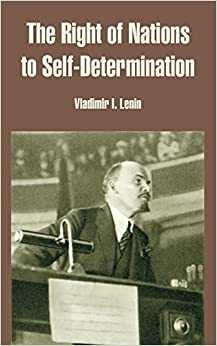
They corrupted the party membership with reactionary concepts so much so that they wrote on self-determination in Rupasingha’s aforesaid letter that, “the slogan means fighting to assert the right of self-determination of the Sinhala and Tamil working class against the Sinhala and Tamil capitalist class.” This is a distortion of history, concepts and political positions. Whatever be their thinking, such a position definitely aligns with the pressure of anti-historical, Sinhalese-Buddhist racist, reactionary position that the oppressed Tamil people are not subjected to different oppression than the Sinhalese. Within the Marxist movement, this slogan proclaims opposition to the subjugation of weaker nations by imperialism and the subjugation of minority ethnic groups by the rule of the majority group within the nation-state itself. When the International Committee reconsidered this concept and its use since early ’90s, it was not stripped of its democratic content, as the party bureaucracy claims.
SEP membership will read my answer now for the first time. It is posted below. It contains only that part of the reply titled “False Charge Sheet”, which relates to the subject in issue. Even so, bearing witness to the firm struggle waged by the SEP left faction to resolve political issues politically, it will gain, I believe, the necessary attention from the working class, in order to secure the progressive development of the party and the class struggles ahead.
False charge sheet
According to your statement, “the SEP Political Committee unanimously condemns the attempt to distort a very important policy issue of the International Committee of the Fourth International and the Socialist Equality Party – the decision to reject the demand for the right of nations to self-determination — and thereby create serious confusion about that policy.
It also states: “Your position that the SEP defends the self-determination of nations is in stark contrast to the positions especially of paragraphs 30-4 and 30-6, in the International Foundation.”
You are using a conversation that started on my page in the face book on November 5, 2021. It was based on the following excerpt from SEP Principles Statement that I have quoted there.
“Democratic Centralism
The revolutionary struggle of the working class requires organization, and organization is impossible without discipline. But the discipline required for revolutionary struggle cannot be imposed bureaucratically from above. It must develop on the basis of an agreement, freely arrived at, on principles and program. This conviction finds expression in the organizational structure of the Socialist Equality Party, which is based on the principles of democratic centralism. In the formulation of policy and the appropriate tactics, the fullest democracy must prevail within the party. No restraints, other than those indicated by the party’s constitution, are placed on internal discussion of the SEP’s policies and activities. Leaders are democratically elected by the membership, and are subject to criticism and control. Those candidates for leadership who cannot abide criticism should ponder the words of James P. Cannon, the founder of the Trotskyist movement in the United States: “The truth never hurt anyone, provided he was on the level.” But if the formulation of policy requires the broadest discussion and open and honest criticism, its implementation demands the strictest discipline. The decisions arrived at democratically within the party are binding on all members. Those who object to this essential element of centralism in the implementation of decisions, who see in the demand for discipline a violation of their personal freedom, are not revolutionary socialists but anarchistic individualists, who do not understand the implications and demands of the class struggle. “
I say that your opposition is to the basic principles of Bolshevism quoted above, such as broad discussion, genuine criticism and strict discipline.
Let me quote the relevant discussion that took place under the above post – which you are distorting, with a person named Seevali Attanayake – in the exact way it actually happened.
Seevali Attanayake: Does the SEP currently recognize the right of minorities for selfdetermination?
Nandana Nannetti: Yes. Attanayake: With regard to Sri Lanka? Nandana: Yes. Attanayake: Long live my old Kamkaru Mawatha.
Nandana: I do not understand.
Attanayake: After 88/89, I worked with the Kamkaru Mawatha at the University. Later it was learned that they did not recognize the right of the Tamil people for selfdetermination.
Nandana: The RCL and the SEP have never acted in defiance of the civil rights of the oppressed masses. But we repel the conspiracies of building up of small imperialist dependent pockets in the name of self-determination. How many examples one can find to show that such fragments of states do not protect any right of the oppressed people? All radical nationalist movements have aligned themselves with this or that imperialist group over the past few decades.
Attanayake: It is very clear that the SEP’s position has changed. Thank you. What is the party’s position on the right of nations to self-determination and the concept of homeland?
Nandana: Defending the right to self-determination of the oppressed is now a task for the working class. That position has never changed. Can you mention any such instance?
Attanayake: Is the Kamkaru Mawatha, which raised its voice against the genocidal war during the Civil War, is still holding that position today?
Nandana: Yes, today, tomorrow and forever it will mobilize the working class against the aggression of the Sinhala ruling class.
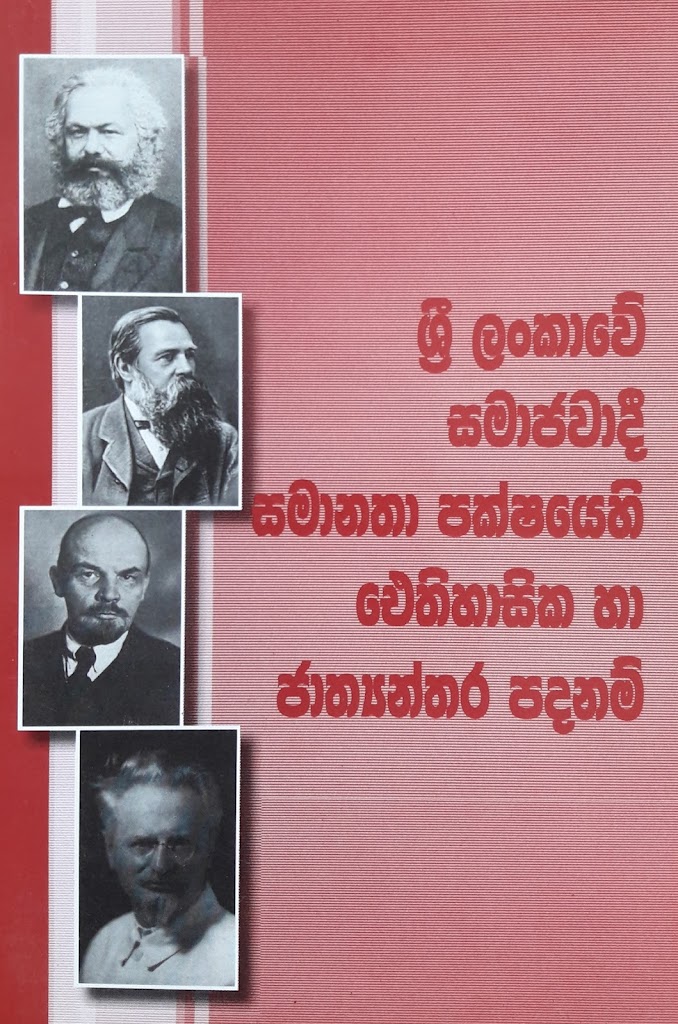
Nandana: Read the Historical and International Foundations of the Socialist Equality Party of Sri Lanka -The National Question. You can read it from wsws.org (National question in Foundation document is the full text from 30-1 to 30-6 of that document.)
Attanayake: Is the SEP still advocating for the formation of a Socialist Republic of Tamil Eelam-Sri Lanka as a part of the Socialist Republic of Indian subcontinent under the leadership of the working class?
Nandana: Yes Attanayake: Thank you comrade, for patiently replying.
(from this conversation, it is shown that our position on the national question is sometimes presented before the masses in a distorted way. I think those who participated in this conversation were able to correct it.)
The next day, Nalaka Malalagama, a sympathizer of the party, made a special note in his face book as follows: “The SEP (RCL) does not stand for self-determination of the oppressed.” This is a statement hostile to the SEP’s perspective. We will no longer use the ‘right to self-determination’ as a slogan. The reason for this is, as we have affirmed in our reply to the Spartacist League, due to the fact that the new separatist nationalist movements and imperialists have distorted the meaning of the slogan, it creates confusion.
It does not mean any neglection of the self-determination which is among the most basic democratic rights of oppressed nations.
I wrote: “The LSSP entered the bourgeois government and betrayed the working class perspective on the self-determination of the oppressed nations. It was the beginning of a 30-year war and the prolongation of the existence of capitalism. In that case, knowingly tolerating Malalagama’s propaganda below is a betrayal of the unstoppable revolution. “
The lesson that the LTTE’s separatist movement is, in the final analysis, the result of LSSP betrayal; is far greater than an accusation leveled at the LSSP itself. That is, it is an accusation against Trotskyism and, was an event that raised unavoidable historical, theoretical and political issues directly linked with the life of the international working class.
The LSSP, which was rooted in the working class marked the earliest instances of a Trotskyist party entering a bourgeois government and, spearheaded the creation of a racial and religious constitution against the oppressed, creating conditions for the alienation of the oppressed Tamil nation from the working class. It also created the conditions for a generation of working class and young people to be positioned against the program of the permanent revolution.
On this basis that I have defended the positions of paragraphs 30-4-5-6, which you say I have contradicted.
For example, I can show you that there is no contradiction between this position appears in 30-4 and my comment: “The new form of nationalism promotes separatism along ethnic, linguistic, and religious lines, with the aim of dividing up existing state for the benefit of local exploiters. Such movement have nothing to with a struggle against imperialism, nor do they in any sense embody the democratic aspirations of the masses of oppressed. They save to divide the working class and divert the class struggle in to ethno-communal warfare.” In the interest of unifying the working class, the international committee insisted in a critical, even hostile, attitude to the proliferation of national separatism movements and there invocation of ‘the right of self-determination’ to justify the formation of separate capitalist state.”
30-5 as stated, “For the masses, they hold out the prospect only of ethnic bloodbaths and intensified exploitation.”
30-6 declares that, “support for the right of ‘self-determination for the Tamil people’, which in practical political terms could only mean support of the national separatist project of the LTTE, no longer had any progressive content.” But “The RCL continued to intransigently oppose the Sri Lankan government efforts to forcibly maintain the island’s unity by military means.” ( The emphasis is mine )
I am convinced that I have expressed a very clear hostile attitude to the right to ‘selfdetermination’ which is emphasized in black letters here. As the final sentence states; “The RCL’s demand for the unconditional withdrawal of armed forces from the North and East did not imply support for a separate Eelam. The idea is to unite the working class and the oppressed masses in a revolutionary struggle.” Instead, the RCL’s expectation in opposing the military repression against the Tamil masses was to unite the working class and the oppressed masses in a revolutionary struggle for a Sri Lanka Eelam Socialist Republic. “The meaning of this is that, the struggle for working class dictatorship is waged on the basis of the unity built upon the foundation of accepting democratic rights including the right to self determination of the oppressed nations.”
Removing its all-essential adjectives and declaring that the SEP does not stand for the right of the self determination of the oppressed nations is hostile to the unity of the working class that emerges from this perspective.
In my understanding, the concept of the transitional program in the Question of selfdetermination is still valid today.” It is impossible merely to reject the democratic program; it is imperative that in the struggle of the masses outgrow it. The slogan for national (or constituent) Assembly preserves its full force of such countries as China or India. This slogan must be indissolubly tide up with the problem of national liberation and agrarian reform. As a primary step the workers must be armed with this democratic program.” ‘The Death Agony of Capitalism and Task of the Forth International’ (The emphasis is mine)
“The truth is that the essential progressive content of self-determination –the eradication of national oppression- can be realized only through the SEP’s program for the socialist united states of Sri Lanka and Elam.“ ‘The SEP and the fight for the socialist united states of Sri Lanka and Elam 1998’
“The outbreak of the first word war vindicated Trotsky’s insistence on the primacy of the international situation over national factors “comrade Dave stated “The imperialist war signified in essence, the impossibility of peaceful reconciling the productive force of world capitalism with the outmoded national state. Both the working class in the advance as well as backward countries faced a common dilemma: The solution to all the fundamental problems of human society was to be found only at the level of word economic development and through the medium of international revolutionary struggle”, (Commemoration of comrade Keerthi Balasuriya’ 1993)
“Trotsky argued very clearly on this question; even in his lifetime, when the demand for self-determination still retained a progressive content, it did not stand above the struggle to establish the unity of the working class on the basis of socialist program. The demand for self-determination did not then, no dos it now, signify the reconciliation of Marxism and nationalism. Above all, it does not oblige the Marxist party to give support of any kind to separatism” Ibid
As Trotsky says “Only the question of power by the world proletariat can assure a real and lasting freedom of development for all nationals of our planet”
‘For socialist, self-determination means nothing if not opposition to the use of state coercion to force national minorities remain within the confines of given state. This was the essential democratic content of the demand when it was posed at the beginning of this century and remains so today” in ‘Marxism, opportunism and the Balkan crisis’, ICFI’1984
The unprecedented geographical integration of capitalist production unleashed two major trends on the national question.
1) The old nationalist regimes attracting geographically circulating capital by providing all the factors of cheap labor and unbridled exploitation.
2) In areas where natural resources and industries are set aside to repay foreign debt, as well as in areas with international transport capabilities, public works structure and cheap labor, the ruling parties have seceded from the influence of all previous governments and put forward separatism to racket themselves with foreign capital and gain more profit.
Our struggle against these tendencies is the mobilization of all nations under the revolutionary leadership of the working class, and there is no easy way to achieve that struggle, disregarding the national question.
I must now say that you are working with the attitude that there is no special thing called a national question. You define that all people face in the crisis of capitalism, dismissing its contradictions. That leads you to a pragmatic approach which is against the dialectics. It is not the policy of the working class. This stance abandons the theory of permanent revolution.
I think this provides a clear answer to your charge sheet. We need to work together to understand the roots of the problem. I will provide the rest of this article within the next two weeks.
Fraternally,
Nandana Nanneththi
06.12.2021

